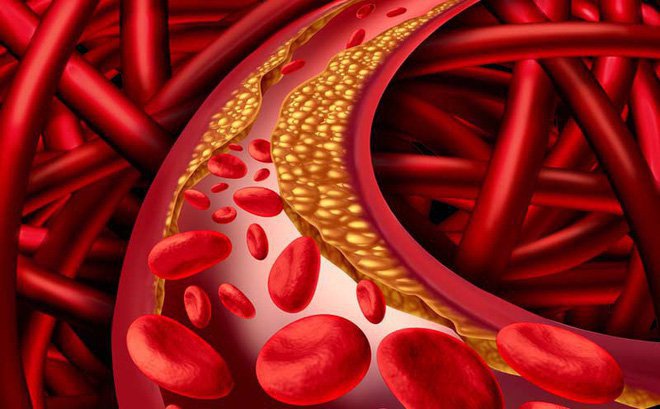Nephrotic syndrome: What you need to know
The article is written by Master, Doctor Nguyen Thi Thanh Thuy - Endocrinologist - Dialysis - Kidney Transplant - Department of Examination & Internal Medicine - Vinmec Central Park International General Hospital.
Nephrotic syndrome is a kidney disorder that causes the body to excrete too much protein in the urine. Nephrotic syndrome occurs when the filtering membrane of the glomerulus becomes inflamed and damaged (the filtering unit of the kidney). The glomerular membrane filters the blood in the body as it passes through the kidneys.
1. An overview of nephrotic syndrome
Nephrotic syndrome occurs when the filtering units of the kidneys (glomeruli) are damaged. This damage allows protein (protein) – normally retained in plasma – to leak into your urine in large amounts, reducing the amount of protein in your blood. Because proteins in the blood help keep water in the blood vessels, now that the amount of protein is low in the blood, water from the blood vessels will move into nearby tissues, leading to swelling, also known as edema. This swelling is evident in the legs when you stand or in the eyelids and face when you wake up early in the morning. Even this condition can occur at any time of the day, or in other parts of the body. You may also find that your urine is more foamy than usual due to the large amount of protein in it.
2. Signs and symptoms of nephrotic syndrome
Proteinuria (>3.5g/24 hours) Edema around the eyes, face, feet, ankles or abdomen Rapid weight gain (due to fluid retention) Foamy urine Unappetite Increased blood cholesterol, decreased protein, albumin blood

Một trong số các triệu chứng của hội chứng thận hư đó là tăng cholesterol máu, giảm protein, albumin máu
3. Causes of nephrotic syndrome
Nephrotic syndrome can have a cause or primary (cause unknown):
Primary: Possible lesions (diagnosed by renal biopsy) such as minimal lesions, focal glomerular fibrosis regional, membranous nephropathy, IgA nephropathy... Infections, viral infections (hepatitis B, C, HIV...), parasitic infections Systemic diseases: Lupus erythematosus ... Diabetes mellitus, increased blood pressure Certain types of cancer
4. Diagnosing nephrotic syndrome
Tests to be done to diagnose nephrotic syndrome include:
Blood and urine tests needed for a definitive diagnosis of nephrotic syndrome (24-hour proteinuria, blood protein electrophoresis, proteinuria, fat set) and determine the cause, if any. Renal ultrasound and kidney function tests. Most require a kidney biopsy to determine the type of kidney injury and the cause (unless diabetes or hypertension is long-standing and no other cause is thought). Genetic testing for some hereditary kidney diseases.

Xét nghiệm máu và nước tiểu cần cho chẩn đoán xác định hội chứng thận hư và xác định nguyên nhân nếu có
5. Treatment of nephrotic syndrome
Your doctor may prescribe you to reduce salt and water retention in the body, reduce protein excretion in the urine and lower cholesterol in the blood. In addition, the doctor also prescribes drugs that suppress the immune system to reduce the inflammatory response in the glomeruli, this drug must not be stopped suddenly and the dose needs to be adjusted depending on the condition and stage of the disease, so you need to follow up with your doctor on time. . In some cases of severe disease leading to severe kidney failure, your doctor may give you temporary dialysis to wait for your kidneys to recover. If the kidneys do not recover, you must undergo dialysis or a kidney transplant.
You can help with your treatment by:
Reduce your salt intake according to your doctor's instructions. The snacking will be maintained for as long as possible. Limit water intake or food intake if you still have swelling. Track your weight daily to see if you've lost or gained weight. You need to follow a reduced protein diet if you have kidney failure. Good control of blood pressure and blood sugar. Because high blood pressure and blood sugar are harmful to the kidneys. Lose weight if you are overweight. Because obesity can cause high blood pressure and diabetes, harmful to the kidneys. You can discuss with your dietitian about how much water you can drink each day, and what diet is right for you. Do not smoke, drink alcohol, exercise regularly. Talk to your nephrologist before taking prescription or over-the-counter medications, vitamins, minerals, weight loss pills, or sports supplements. If injectable imaging is required, your kidney function test should be ordered prior to the procedure. Discuss with your doctor about birth control and pregnancy if the patient is female. Do not miss a follow-up appointment with your doctor. At Vinmec International General Hospital, there is a package of urological examination and screening to help customers detect diseases early and have effective treatment and prevent dangerous complications. When choosing the package of urological examination and screening at Vinmec, customers will receive:
Urological specialist examination Urinary system ultrasound Total PSA quantification Free PSA measurement Urine culture To help early detection possible urinary tract infections. Especially prostate diseases (benign prostatic hypertrophy, prostate cancer) and urinary stone pathologies.... thereby helping customers to take preventive measures.
Để đặt lịch khám tại viện, Quý khách vui lòng bấm số HOTLINE hoặc đặt lịch trực tiếp TẠI ĐÂY. Tải và đặt lịch khám tự động trên ứng dụng MyVinmec để quản lý, theo dõi lịch và đặt hẹn mọi lúc mọi nơi ngay trên ứng dụng.
Reference source: kidney.org






